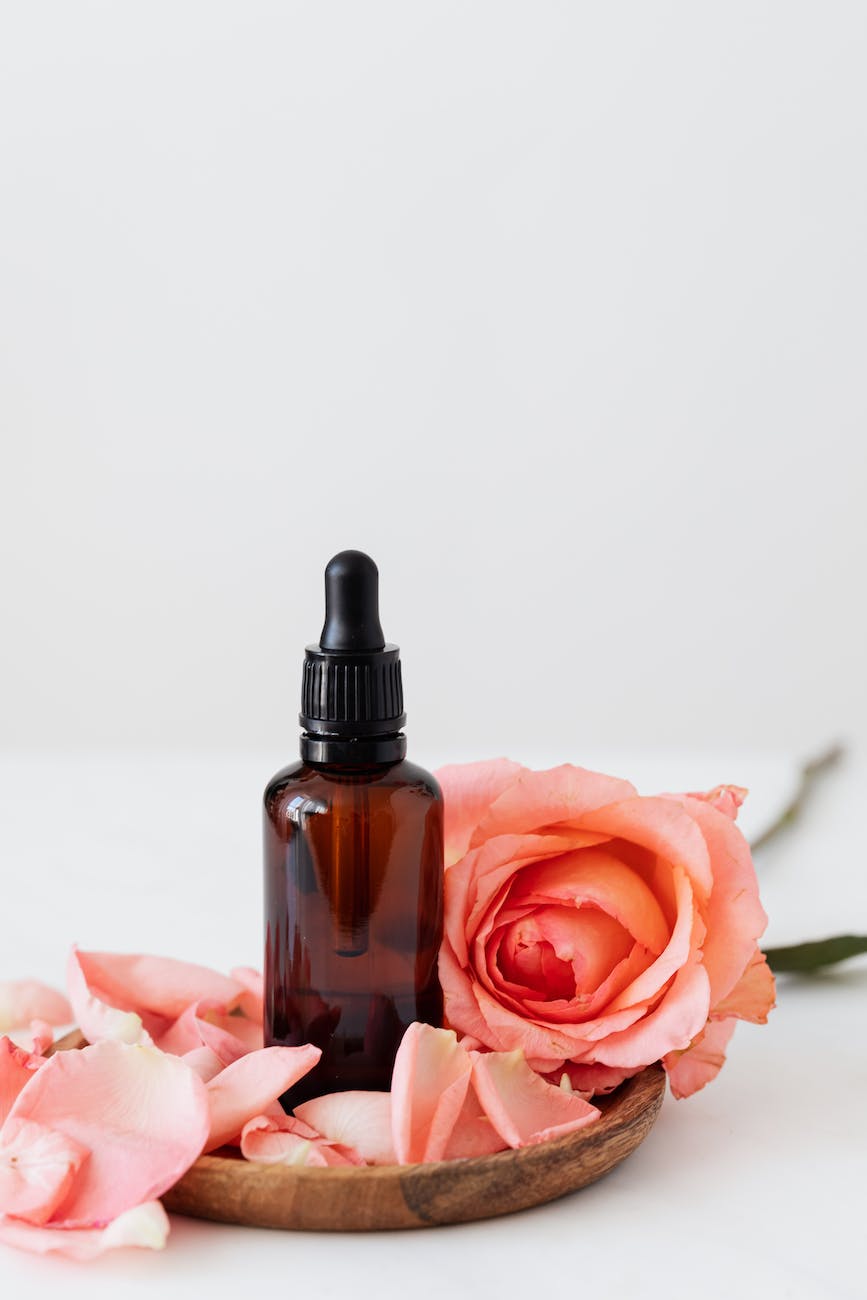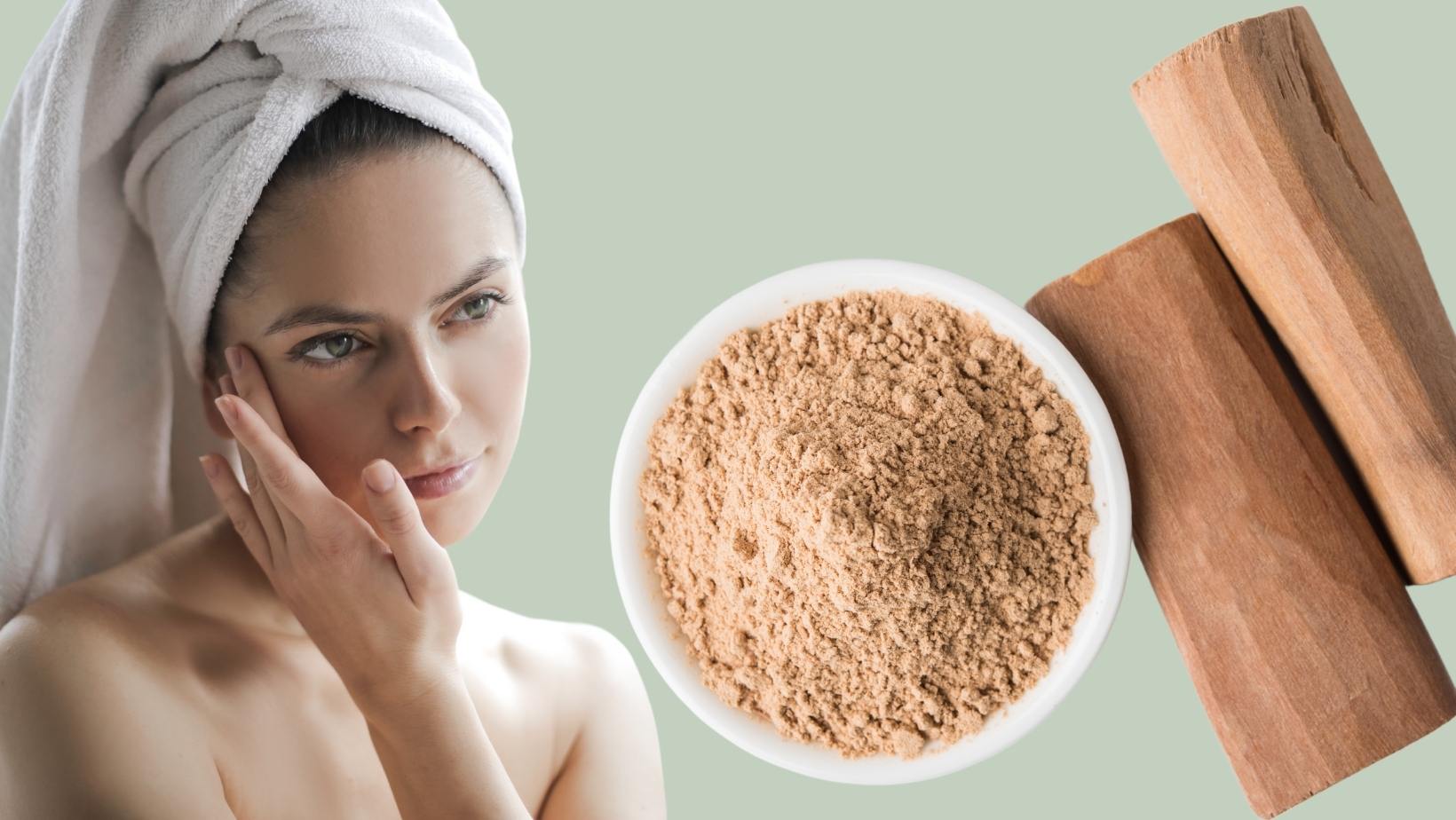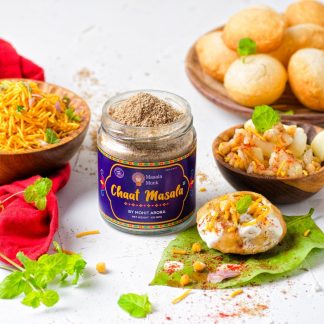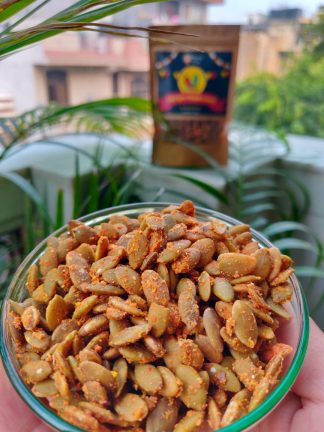
Olive oil, often dubbed as ‘liquid gold’, has been a staple in Mediterranean kitchens for centuries. But beyond its culinary charm, it holds a treasure trove of skincare benefits. From treating specific skin ailments to general nourishment, olive oil is a versatile and potent skincare ally. Let’s delve deep into the myriad ways olive oil can be a boon for your skin.
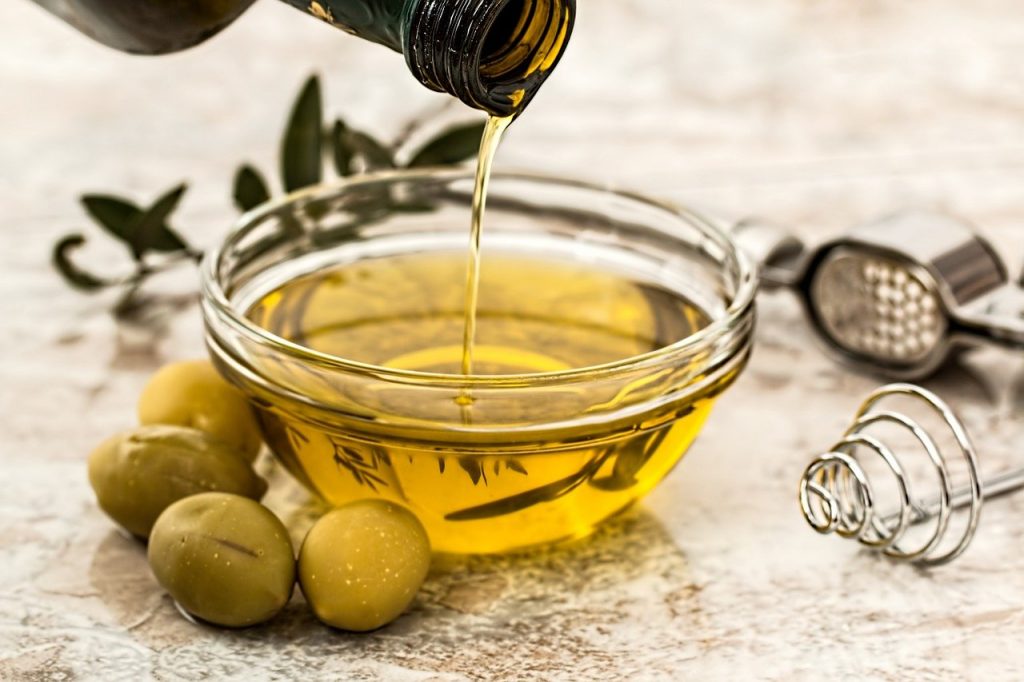
Olive Oil: A Natural Moisturizer
Olive oil is packed with fatty acids and vitamin E, making it an excellent moisturizer. Its composition closely mirrors our skin’s natural oils, allowing it to penetrate deeply without clogging pores.
- For Dry Skin: Whether it’s parched facial skin or dry patches on legs, olive oil provides deep hydration, leaving skin soft and supple.
- Sensitive Skin Soother: Its gentle nature makes olive oil suitable for sensitive skin, offering hydration without irritation.
Combatting Skin Conditions with Olive Oil
Olive oil’s therapeutic properties make it a sought-after remedy for various skin conditions.
- Psoriasis & Eczema: The anti-inflammatory properties of olive oil can soothe the redness and scaling of psoriasis, especially on the scalp. Similarly, its hydrating nature offers relief from eczema’s itching and dryness.
- Rosacea Relief: The redness and irritation caused by rosacea can be alleviated with regular olive oil application, thanks to its anti-inflammatory benefits.
Enhancing Skin Health: Beyond Moisturization
Olive oil’s benefits are multifaceted, addressing various skin concerns.
- Dark Spots & Stretch Marks: Rich in vitamin E, regular application of olive oil can lighten dark spots and reduce stretch marks’ appearance.
- Anti-Aging & Skin Tightening: Packed with antioxidants, olive oil combats signs of aging, enhancing skin elasticity and imparting a firm appearance.
- Natural Cleanser: Its ability to dissolve dirt and makeup makes olive oil an effective and natural facial cleanser.
Special Uses: From Sun Protection to Allergy Relief
While olive oil’s primary benefits revolve around moisturization and treatment, it has some unique uses worth exploring.
- Natural Sunscreen?: Olive oil does have SPF properties, but it’s essential to note that it can’t replace dedicated sunscreens. However, it can complement your sun protection routine by providing added hydration.
- Allergy & Itch Relief: For those unexpected itchy moments, whether due to allergies or other irritants, olive oil can come to the rescue with its soothing properties.
Choosing the Right Olive Oil: EVOO & Beyond
When it comes to skincare, not all olive oils are created equal.
- Extra Virgin Olive Oil (EVOO): Being the least processed form, EVOO retains the most nutrients, making it especially beneficial for face applications.
- Ozonated Olive Oil: Especially beneficial for conditions like eczema, this variant offers enhanced therapeutic properties.
How to Incorporate Olive Oil into Your Skincare Routine
Harnessing the benefits of olive oil for your skin is both simple and versatile. Here’s a detailed guide to seamlessly integrate this natural elixir into your daily skincare regimen, focusing on the specific queries and keywords shared:
1. Olive Oil as a Deep Facial Cleanser and Makeup Remover
Why Use Olive Oil?
Olive oil can dissolve even the most stubborn waterproof makeup while nourishing the skin.
Step-by-Step Guide:
- Step 1: Pour a generous amount of olive oil onto your palm.
- Step 2: Rub your hands together to warm the oil slightly.
- Step 3: Gently massage the oil onto your face in circular motions, ensuring you cover all areas, including the eyes and lips.
- Step 4: Wipe off the oil using a soft, damp cloth, or rinse with lukewarm water. Your face should feel clean, soft, and hydrated.
2. Deep Moisturization and Treatment for Specific Skin Conditions
Why Use Olive Oil?
Its anti-inflammatory properties make olive oil an excellent remedy for conditions like psoriasis, eczema, and rosacea.
Step-by-Step Guide:
- Step 1: After cleansing, take a few drops of olive oil.
- Step 2: Apply it evenly across your face, neck, or any affected areas.
- Step 3: Massage gently until it’s absorbed. For conditions like eczema or psoriasis, consider mixing olive oil with aloe vera for added soothing effects.
3. Olive Oil Exfoliation for Radiant Skin
Why Use Olive Oil?
When combined with natural exfoliants, olive oil can help slough off dead skin cells, revealing a brighter complexion.
Step-by-Step Guide:
- Step 1: Mix olive oil with a natural exfoliant like sugar or sea salt in a bowl.
- Step 2: Wet your face with lukewarm water.
- Step 3: Gently scrub the mixture onto your face in circular motions for a few minutes.
- Step 4: Rinse off with warm water and pat dry.
4. Olive Oil for Dark Spots and Stretch Marks
Why Use Olive Oil?
Rich in antioxidants and vitamin E, olive oil can help in reducing the appearance of dark spots and stretch marks.
Step-by-Step Guide:
- Step 1: Before bedtime, pour a small amount of olive oil onto your palm.
- Step 2: Dab the oil onto dark spots, stretch marks, or any areas of concern.
- Step 3: Massage gently in circular motions until the oil is absorbed.
- Step 4: Leave it on overnight for best results.
5. Storing and Choosing the Right Olive Oil for Skincare
Why is Storage Important?
Proper storage ensures the olive oil retains its beneficial properties and doesn’t turn rancid.
Step-by-Step Guide:
- Step 1: Opt for Extra Virgin Olive Oil (EVOO) for skincare, as it’s the least processed and richest in nutrients.
- Step 2: Transfer the oil to a dark glass bottle if it isn’t already in one.
- Step 3: Store the bottle in a cool, dark place away from direct sunlight and heat sources.
With these detailed steps, you can make the most of olive oil’s myriad benefits for your skin. Whether you’re addressing specific skin concerns or seeking holistic skincare, olive oil stands as a testament to nature’s ability to nourish and heal.
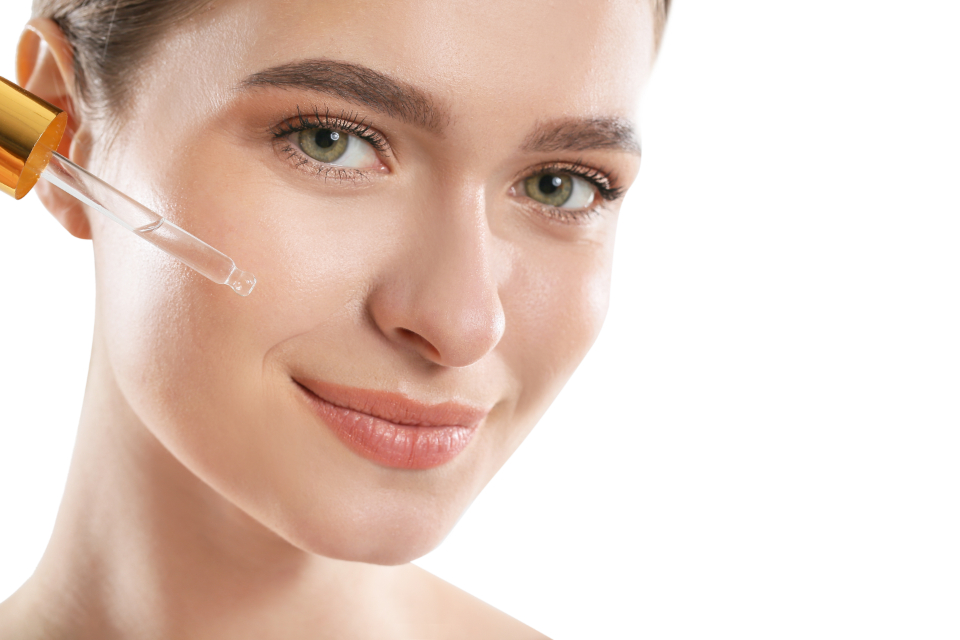
Frequently Asked Questions (FAQs) about Olive Oil for Skin
1. How does olive oil benefit the skin?
Olive oil is a powerhouse of vitamins and fatty acids that deeply moisturize the skin, combat signs of aging, and offer therapeutic properties for various skin conditions.
2. Can I use olive oil as a daily moisturizer?
Absolutely! Olive oil can be used daily to hydrate the skin. Its composition closely mirrors our skin’s natural oils, allowing it to moisturize without clogging pores.
3. Is olive oil suitable for all skin types?
While olive oil is generally suitable for all skin types, those with extremely sensitive or acne-prone skin should do a patch test first or consult with a dermatologist.
4. How can olive oil help with conditions like psoriasis and eczema?
Olive oil’s anti-inflammatory properties can soothe the redness and scaling associated with psoriasis and provide relief from the itching and dryness of eczema.
5. Can olive oil reduce the appearance of dark spots and stretch marks?
Rich in vitamin E and antioxidants, regular application of olive oil may help in lightening dark spots and reducing the appearance of stretch marks.
6. Is it safe to use olive oil as a facial cleanser?
Yes, olive oil can effectively dissolve dirt and makeup, making it a natural and gentle facial cleanser.
7. I’ve heard about Extra Virgin Olive Oil (EVOO) for skin. How is it different?
EVOO is the least processed form of olive oil, retaining the most nutrients. It’s especially beneficial for skincare due to its high concentration of vitamins and antioxidants.
8. Can olive oil protect my skin from the sun?
While olive oil has some SPF properties, it shouldn’t replace a dedicated sunscreen. However, it can be used alongside your regular sunscreen for added hydration.
9. Are there any side effects of using olive oil on the skin?
Olive oil is generally safe for topical use. However, as with any natural product, it’s possible for some individuals to have an allergic reaction. It’s always a good idea to do a patch test before full application.
10. How should I store olive oil for skincare use?
Olive oil should be stored in a cool, dark place, preferably in a dark glass bottle, to preserve its nutrients and prevent it from turning rancid.
In Conclusion: Embrace the Olive
The humble olive, with its golden oil, offers a plethora of benefits for the skin. Whether addressing specific concerns or seeking holistic skincare, olive oil stands as a testament to nature’s ability to nourish and heal. Embrace its goodness, and let your skin bask in its radiant glow.
Blog Tags: Olive Oil Benefits, Natural Skincare, Psoriasis Relief, Eczema Treatment, Anti-Aging, Moisturization, Dark Spot Reduction, Stretch Mark Care, Sun Protection, Sensitive Skin Care.
Continue reading 6 Health Benefits of Olive oil for Skin

